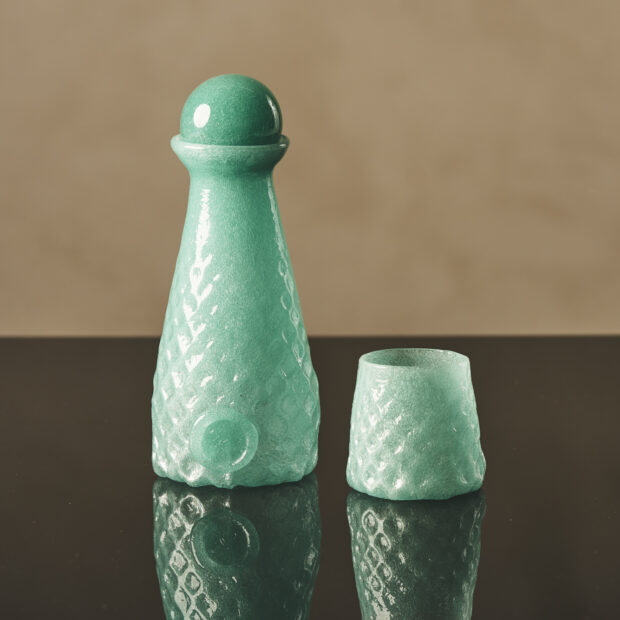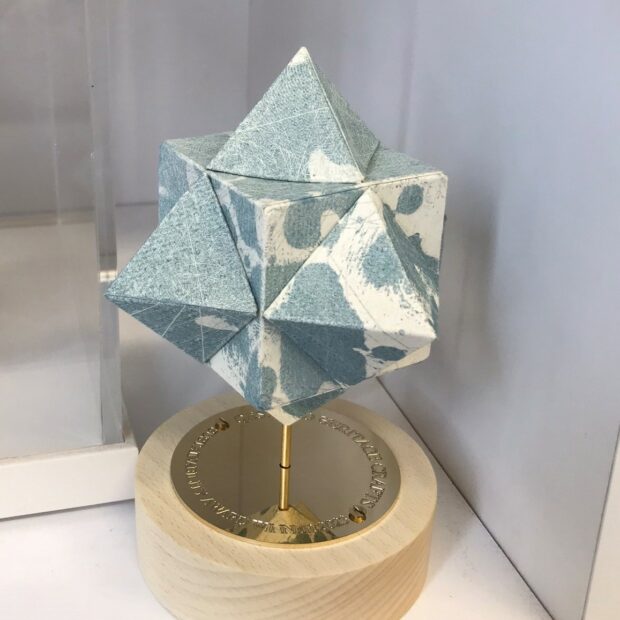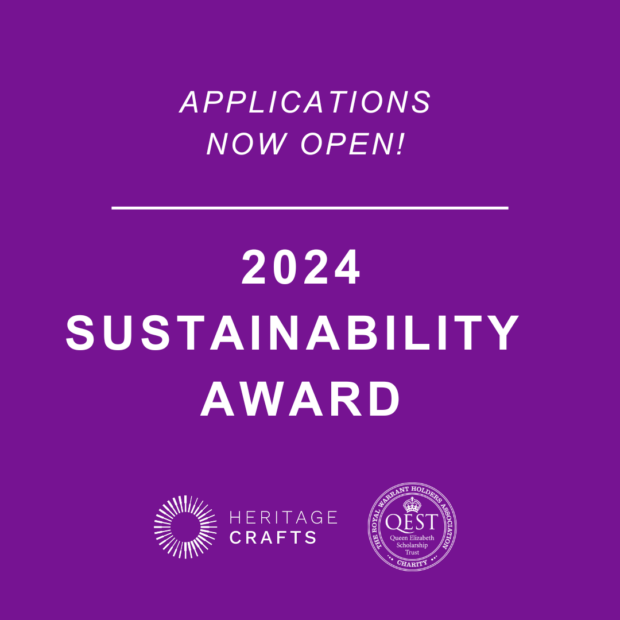Glass artist named Sustainability Award winner
22nd November 2023
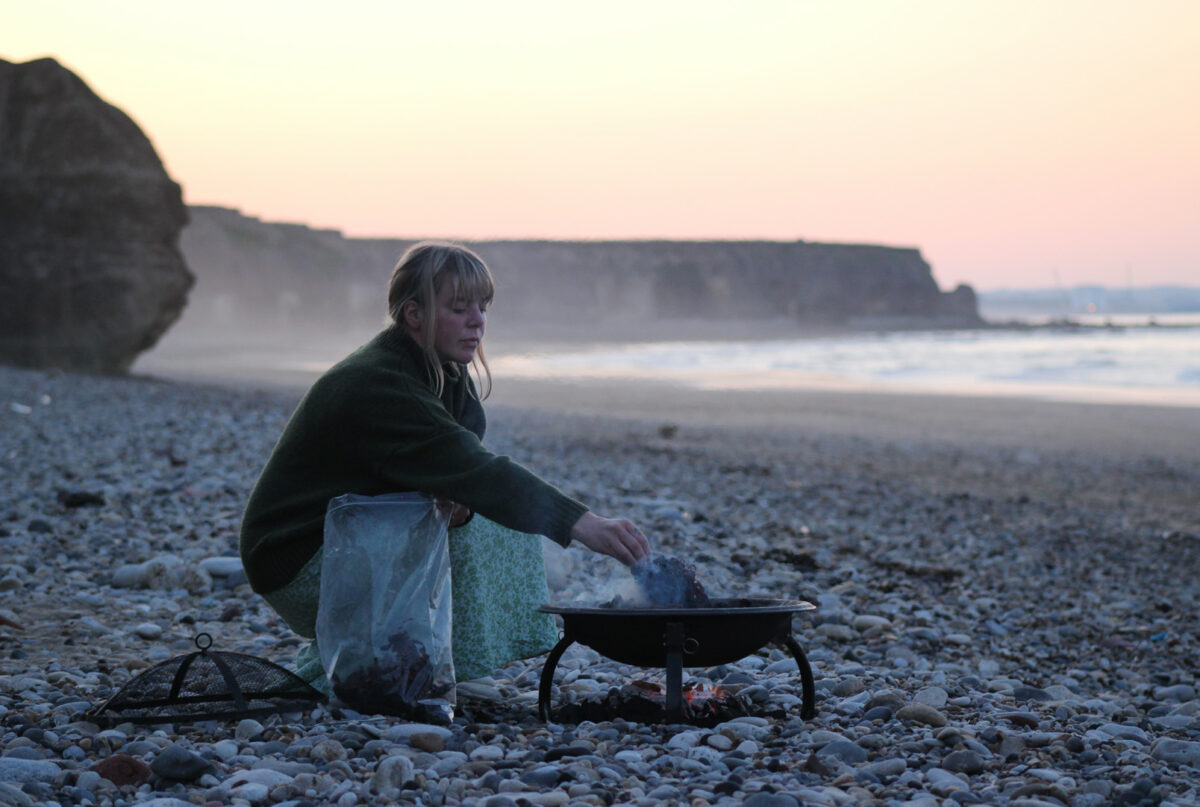
A London researcher and glass artist at the forefront of sustainable glass making using waste materials has won the QEST Heritage Crafts Sustainability Award.
Lulu Harrison, a 2023 QEST Johnnie Walker Scholar, has been recognised for her sustainable processes in incorporating waste from local fishing industries to create glass pieces.
The award, which was introduced in 2023 for the first time, recognises makers who have made a change to their materials or processes or innovated in another way to measurably reduce their impact on the environment within the last 12 months.
Lulu was officially recognised at a Winners’ Reception at the Vicars’ Hall, Windsor Castle where she was awarded the £2,000 prize. She was one of 66 applicants who applied for the award.
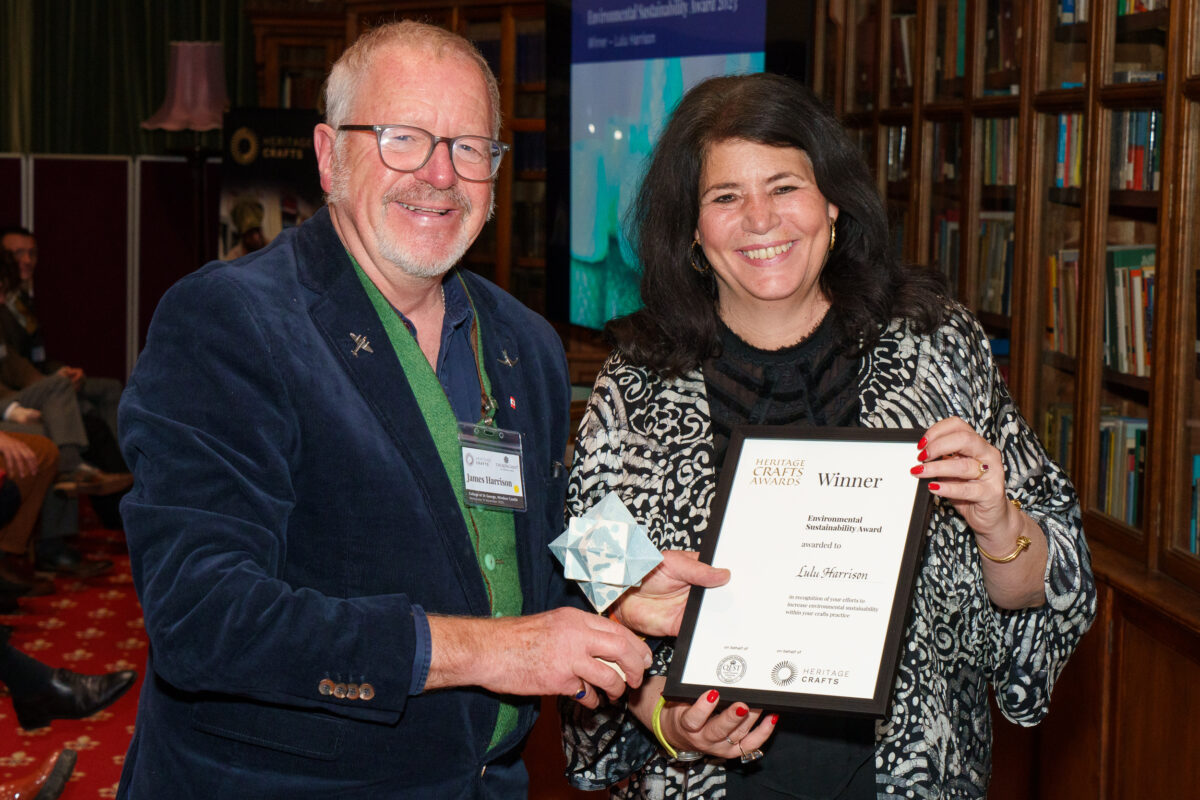
Judges were delighted at the number of applications received for this inaugural award, and the quality and variety which collectively highlighted the role that craft can play in building a more sustainable future for all.
Lulu impressed judges with her approach to glassmaking, which utilises both historic techniques and scientific development, and replaces highly processed/transported materials with local abundant, invasive or waste materials.
It was during her MA in Materials Futures at Central Saint Martins that Lulu first learned that calcium carbonate (i.e. shells) is one of the main components used within soda-lime glass making, and she has since used this knowledge to create collections using shellfish waste from the Cornish fishing industry and the River Thames.
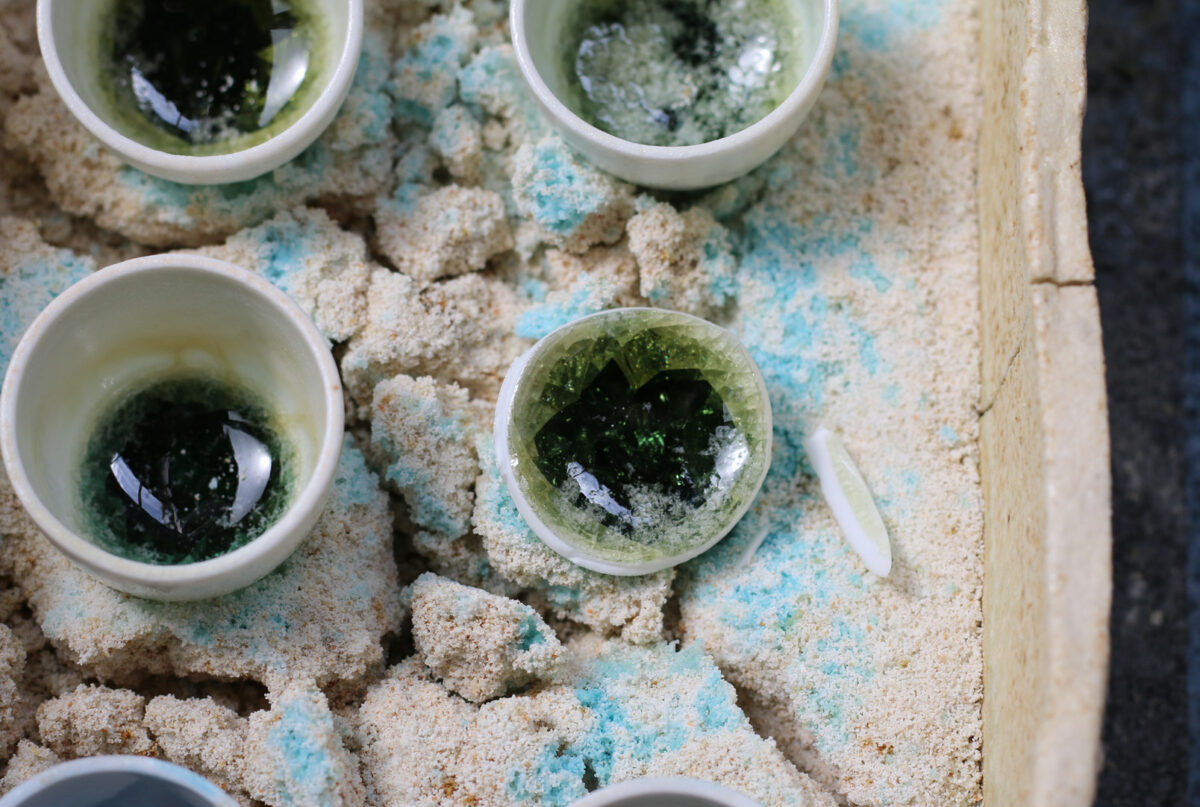
In the last 12 months, Lulu has been training with historical glass expert Dr Chloe Duckworth, testing glass recipes made from various silica, alkali and calcium sources with a maximum of three ingredients in each batch.
All the materials have been sourced locally to Newcastle, and are either in abundance, invasive or collected as waste from a local industry – e.g. waste wood ash and fish bones from a local restaurant.
They have been able to see lower (and therefore less energy intensive) melting temperatures than a typical raw glass batch, and Lulu has also furthered her knowledge about how natural impurities from raw materials can be used to colour glass as a non-hazardous alternative to metal oxides.
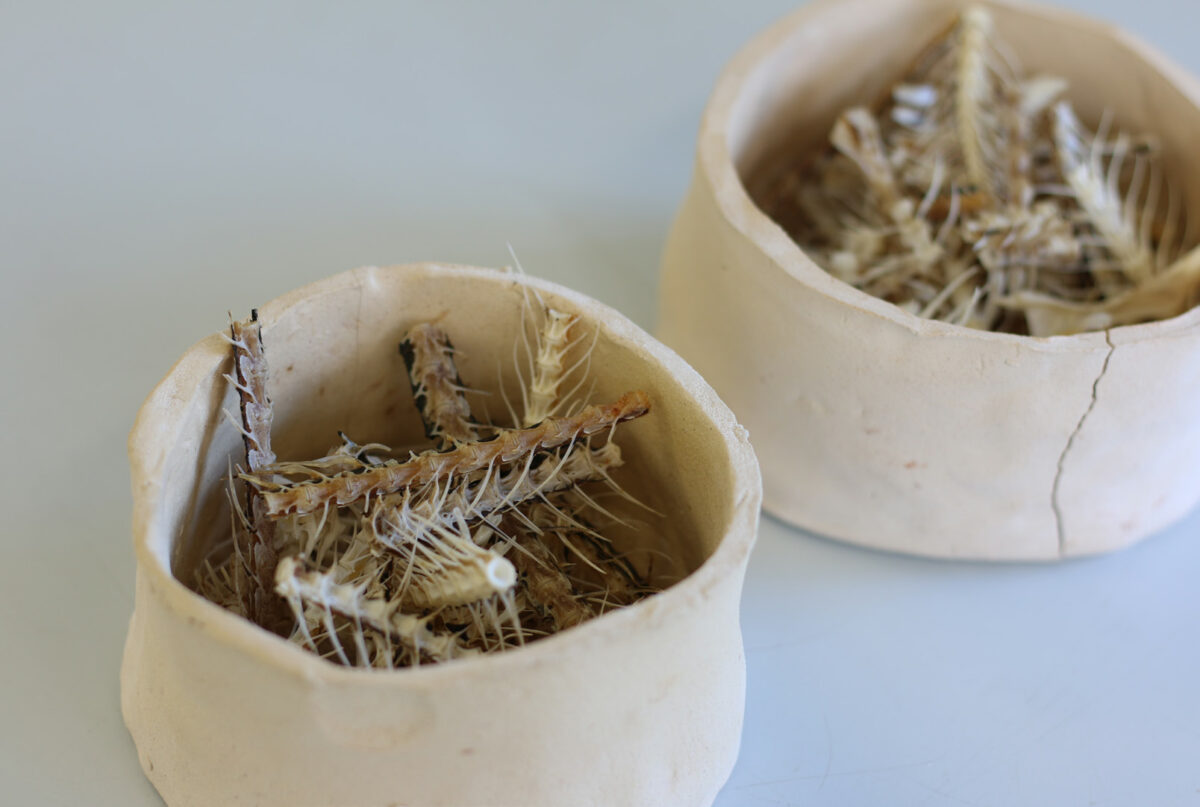
Lulu said she was “over the moon” to be named the winner.
“It’s an incredible honour to be the first recipient of this award, and it means so much to me to be recognised for my craft which is quite niche,” she said.
“My true passion is working with regional materials and working on a more local level inspired by ancient processes, showing the world how glass can be made in a different way.
“As a keen cold-water swimmer, I’ve always loved the sea and I’m interested in working with different coastal communities and coastal plants/shell types to create new glass recipes.”
Lulu said she aims to use the prize money to go towards setting up her own studio and creating new work.
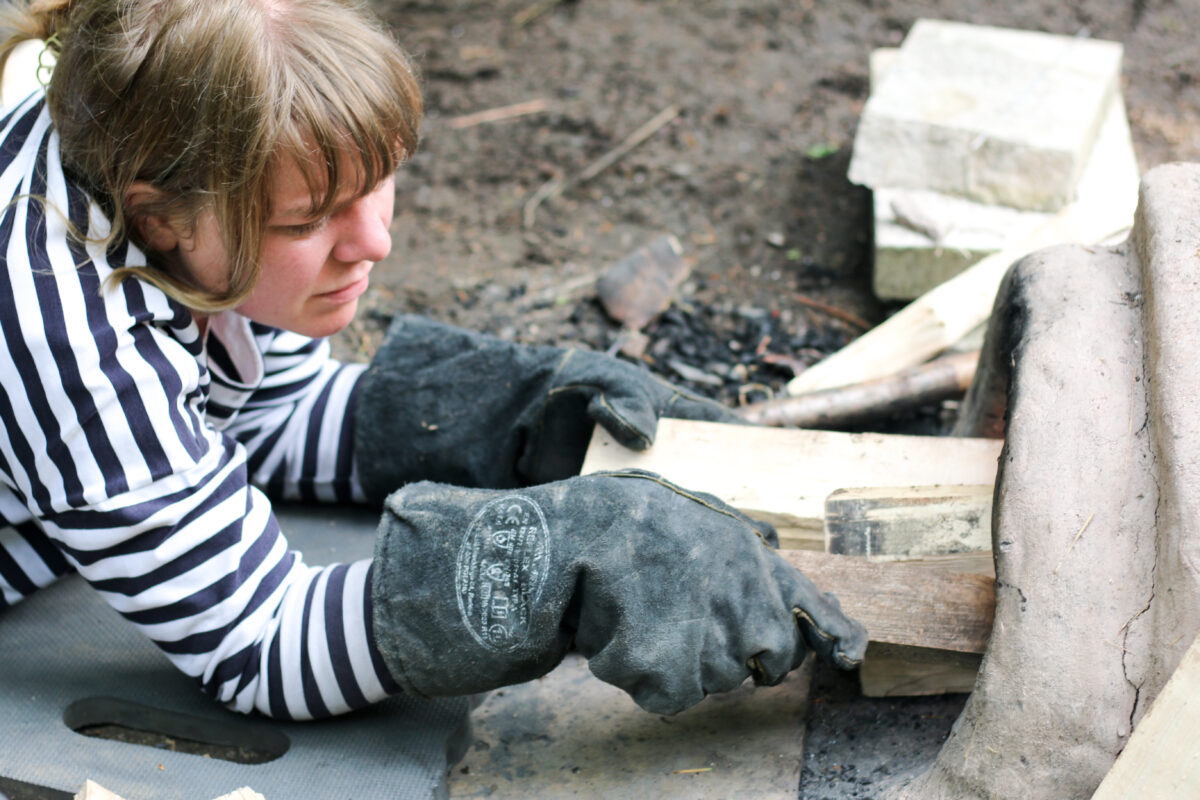
Judges for the Sustainability Award included renowned craft environmental craft advocate Katie Treggiden, founder of Making Design Circular.
Katie said Lulu’s commitment to sustainability was inspiring.
“Lulu’s work stood out for her exciting material innovation within a heritage craft practice, because she is using craft to actively do good and make a positive impact (not just reduce her impact), and because the outcome was beautiful and interesting enough to stand on its own two feet.”
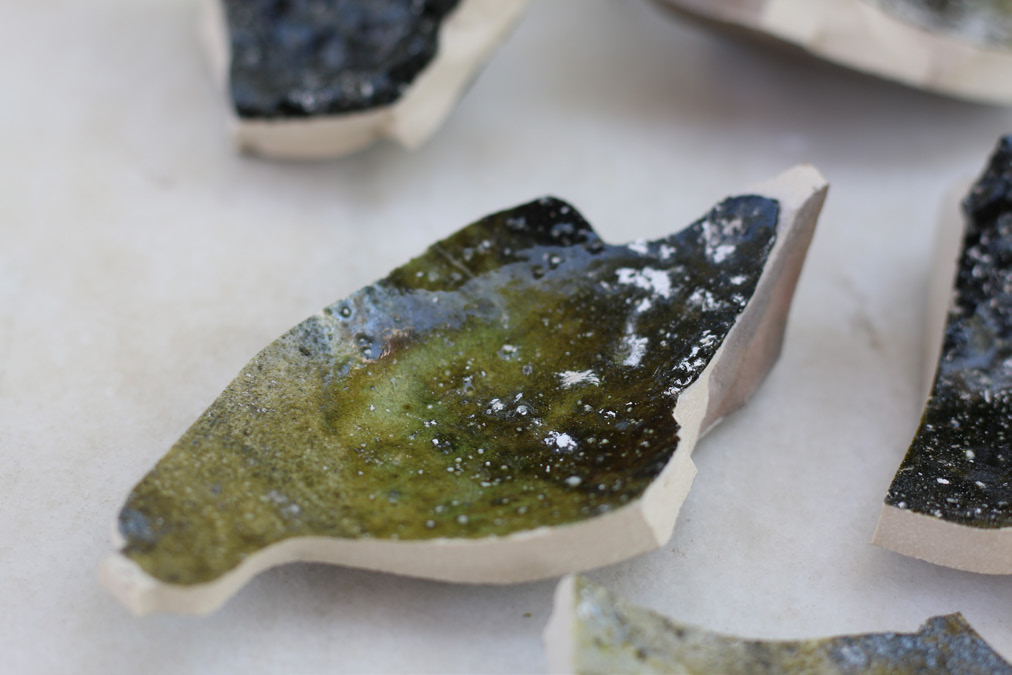
QEST and Heritage Crafts would like to acknowledge 2023 QEST Scholar and printmaker Louisa Boyd who made the winner’s trophy.
“I feel very pleased to have been able to make a piece that honours a maker for caring about the impact of their practice on the environment.”
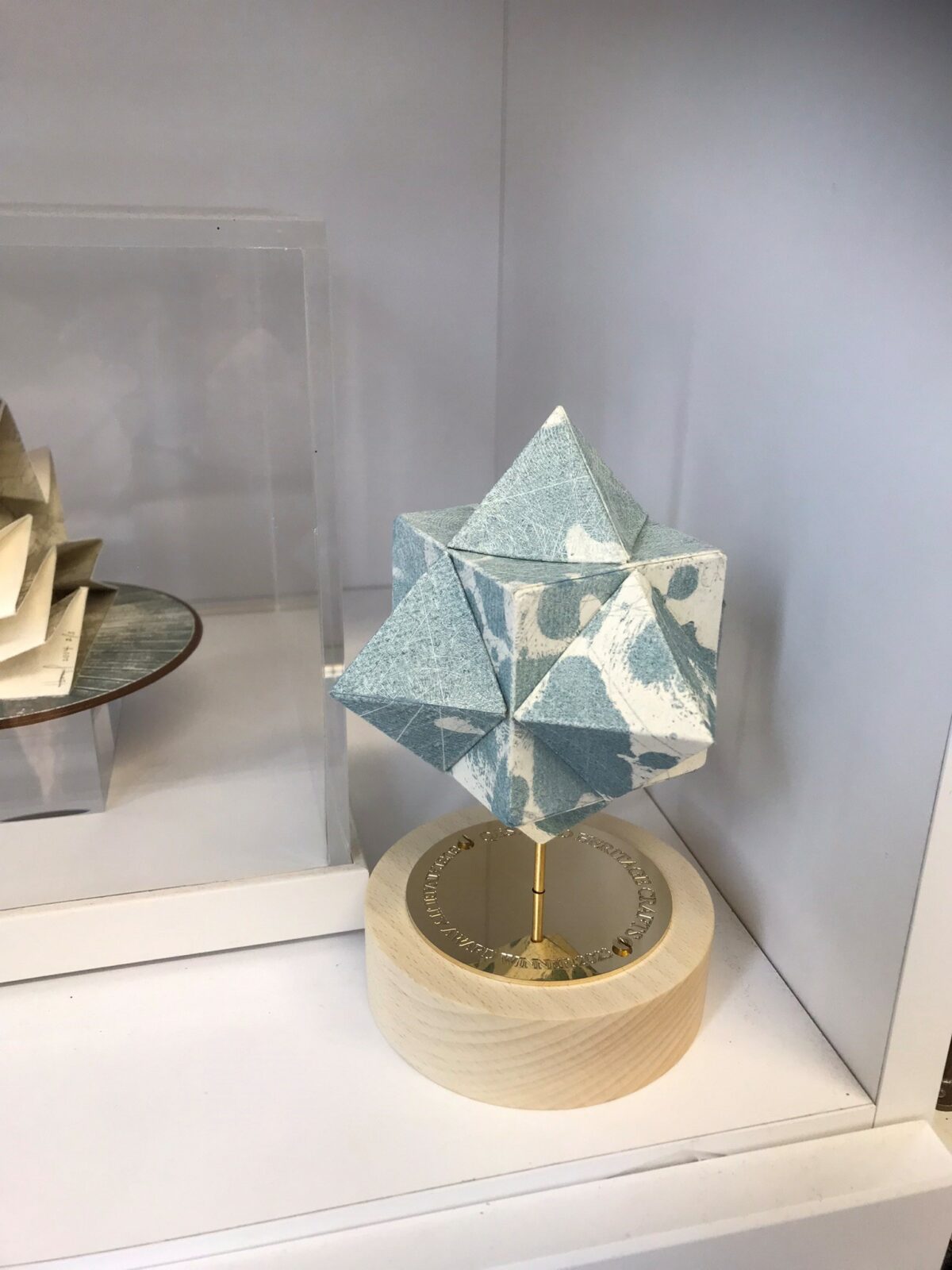
HONOURABLE MENTIONS
The judges would like to give honourable mentions to finalists Anna Mcloughlin and Allister Malcolm:
Anna Mclouglin
Anna is a goldsmith and runs her own business Anna Fine Jewellery and recently opened her own jewellery school, ‘The Studio’.
She has created an off-grid eco studio featuring insulation made from recycled plastic bottles, solar panels, a log burning stove fuelled by home grown wood, a water saving tank system for clean and waste water, and soon to feature a composting toilet.
In her jewellery making, Anna has always used recycled precious metals and fully traceable gemstones, but has recently targeted her marketing much more towards the reuse and remodelling of existing pieces of jewellery.
Her business has achieved B Corp status – meaning it meets the highest standards of verified social and environmental performance, public transparency, and legal accountability to balance profit and purpose.
Allister Malcolm
Allister has been a glassblower for more than 20 years and leads the glass studio at Stourbridge Glass Museum. He is an Honorary Freeman of the Worshipful Company of Glass Sellers due to his commitment and role as an ambassador to the British Glass scene.
Within the last 12 months, the studio’s conversion from fossil fuels began, involving a significant investment of time and money in new equipment.
Allister and his team worked with a UK manufacturer to install an electric furnace and are trialling a first-of-its-kind electric reheating chamber.
They obtained listed building consent to install solar panels to power the studio, and this has been expanded and will soon power the museum, too. The studio is no longer reliant on fossil fuel to power equipment.
Combining these and a number of other approaches has made the studio a model for other glass studios.
